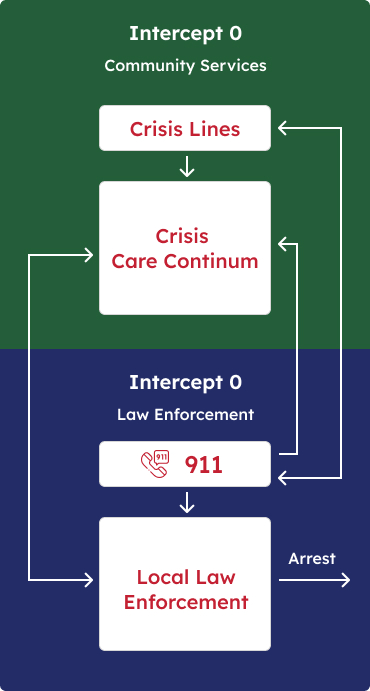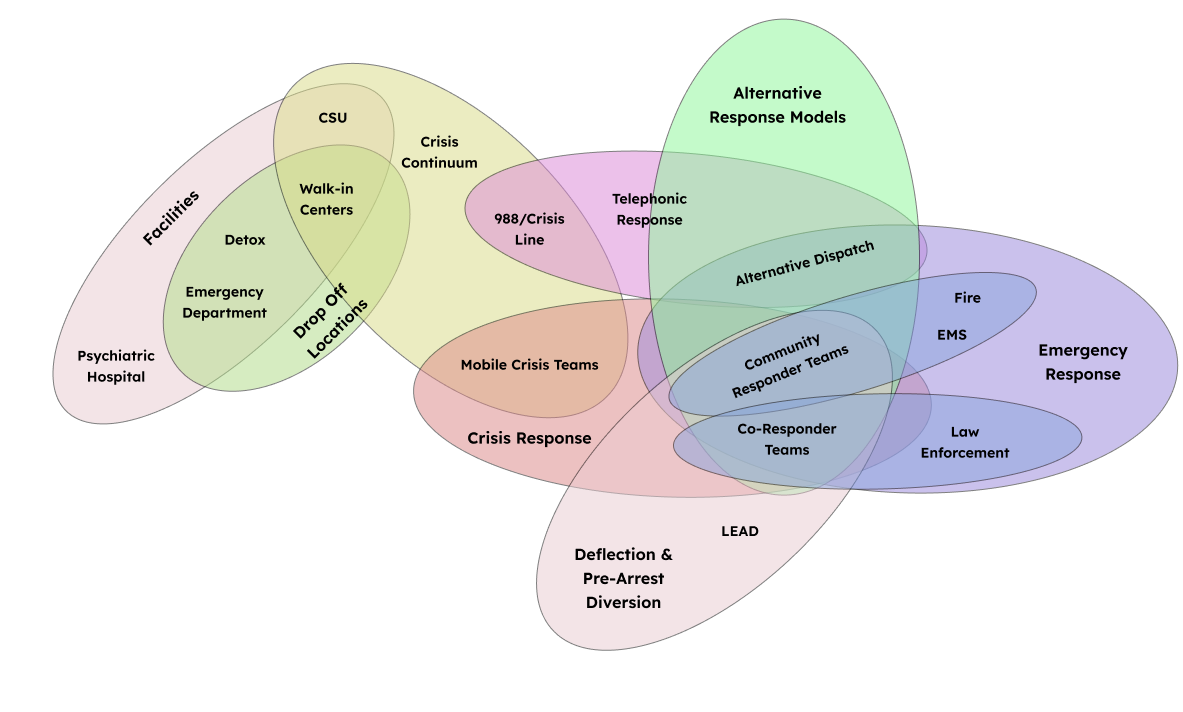Programming Planning Form
Colorado Specialized Response Planning Process Tool
This tool is designed to help jurisdictions plan specialized responses to 911 calls involving behavioral health crises. The intent is to alleviate law enforcement demand, connect individuals in crisis to services, reduce repeat crisis events, and reduce inadvertent criminal justice outcomes. If you have any questions or would like assistance completing this survey please contact us at director@co911rc.org. The survey will suggest planning participants, inventory your existing resources and take you through a decision tree to identify the specialized responses you would like to develop in your jurisdiction. At the end, you will be given your own responses as well as links to resources to develop the specialized responses your planning committee selects.
The trainings linked here are available for no cost to provide accessible training on behavioral health competencies (I.e., Mental Health First Aid, MHFA) and wellness for PSAP staff (I.e., Secondary Trauma and Resiliency) to decrease attrition rates of emergency communication specialists and improve the outcome for individuals calling 911 in behavioral health crises.
This initiative focuses on Intercept 0 and 1 of the Sequential Intercept Model (SIM). The SIM was developed as a conceptual model to inform community-based responses to the involvement of people with mental and substance use disorders in the criminal justice system. The SIM is most effective when used as a community strategic planning tool to assess available resources, determine gaps in services, and plan for community change. Policy Research Associate developed the Sequential Intercept Model (SIM) for the Policy Research Associates.
Intercept 0
-
Mobile Crisis Outreach Teams and Co-responders
Behavioral health practitioners who can respond to people experiencing a mental or substance use crisis or co-respond to a police encounter.
-
Emergency Department Diversion
Emergency departments (EDs) can provide triage with behavioral health providers, embedded mobile crisis staff, and/or peer specialist staff to provide support to people in crisis.
-
Police-behavioral health collaboration
Police officers can build partnerships with behavioral health agencies along with the community and learn how to interact with individuals experiencing a crisis.
Intercept 1
-
Dispatcher Training
Dispatchers can identify mental or substance use crisis situations and pass that information along so that Crisis Intervention Team officers can respond to the call.
-
Specialized police responses
Police officers can learn how to interact with individuals experiencing a crisis in ways that promote engagement in treatment and build partnerships between law enforcement and the community.
-
Intervening with frequent utilizes and providing follow-up after the crisis
Police officers, crisis services, and hospitals can reduce frequent utilizers of 911 and ED services through specialized responses.


Crisis & Alternate Response Venn Diagram
- Facilities: Psychiatric hospital, Emergency Department (ED), Crisis Stabilization Unit (CSU), Walk-in Centers, Detox
- Drop Off Locations: Emergency Department, Detox, Walk-in Centers
- Crisis Continuum (BHA): Crisis Stabilization Units (CSU), Walk-in Centers, Mobile Crisis Team, 988/Crisis Line
- Crisis Response: Mobile Crisis Team, Co-Responder Teams,
- Alternative (to LE) Response: Alternative Dispatch, Community Responder Teams (includes Fire/EMS), Co-Responder Teams (includes Law Enforcement)
- Telephonic Response: 988/Crisis Line, Alternative Dispatch
- Emergency Response: Fire, EMS, Community Responder Teams, Law Enforcement, Co-Responder Teams
- Deflection and Pre-arrest Diversion: Law Enforcement Assisted Diversion (LEAD)







